#of a sort I guess
Explore tagged Tumblr posts
Text

for all of you who might have missed a few of these pieces,
here's a collection of all my pride month character portraits for 2024! this was lots of fun to pull off, especially since I have never coloured and rendered daily art snippets before!!
working with these colour schemes was both really inspirational and informative and I do think I'd like to do a similar challenge next year! tell me what you think :D
before that, have a lovely next 24 hours though!
#digital art#my art#character portrait#portrait#pride month#pride 2024#art summary#of a sort I guess#only it summarizes about a week worth of art lol#drawing#character art#original art
47 notes
·
View notes
Text
I will NEVER not fuck with women using a traditionally masculine title. Tell me more about that girl that's also a prince.
#yes im a lesbian#yes this statement includes me bro i love those funny little titles#anyway#the locked tomb#but also uh#sort of#revolutionary girl utena#i guess
38K notes
·
View notes
Text
u ever see someone with extremely fucked up views (or actions) and think wowww if a couple of things in my life went the tiniest bit differently that would have been me
#iso.txt#i feel like i have the right kind of mindset to have been radicalised into some . not good things if i hadnt seen reason#like the right set of neuroses and stuff.#briefly i guess i was.#i honestly still sort of struggle sometimes to convince myself of some things i *know* i should believe i know are right. idk.
100K notes
·
View notes
Text
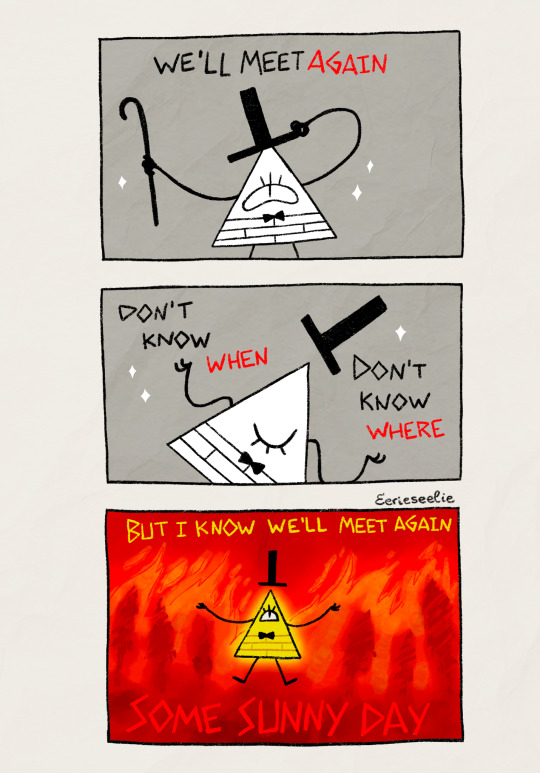
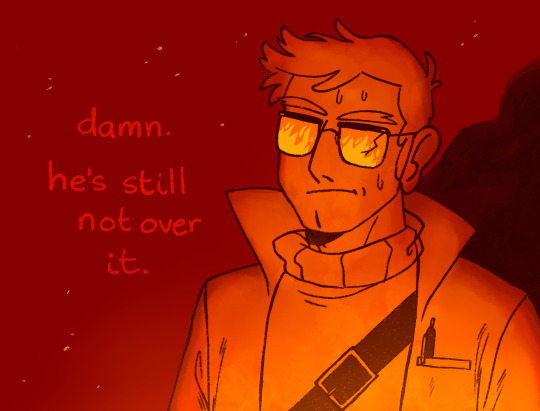
Bill’s cringefail attempt at a serenade
#my art#digital art#gravity falls#bill cipher#stanford pines#billford#I guess#in the toxic divorced exes sort of way
24K notes
·
View notes
Text
If my mom sees a significant amount of blood she gets lightheaded, and has fainted on some occasions. Once it happened when we were kids, I wasn't there to witness it but I heard the story from my dad. Basically my brothers, around 7 or 8 at the time, were playing outside while my mom was making their lunch, and she accidentally cut her finger. It wasn't anything serious, but it drew a fair bit of blood and she passed out. My dad saw this and rushed over, but he didn't really know what to do so he just sort of started slapping her to wake her up (not recommended, but he had no idea and panicked)
At that exact moment my brothers both came in from playing, and all they saw was our mom unconscious on the floor and our dad slapping her. So, like, without even saying a word to each other they both just INSTANTLY start whaling on him, like, full blown attack mode to defend our mom. Which obviously didn't help the situation, but she did wake up and everything was fine.
Now our dad says that he's actually really glad they attacked him over what they thought was going on, because it means he raised good boys. And I still think that's true, they're very good boys.
#i think about this story sometimes like yeah I'm proud of them for that too actually. good job baby brothers#they're not babies anymore of course they're turning 20 next year which is crazy#but they're still the type of people who'd do something if they saw something of this sort happen for sure#respectful of women and everyone else too. they're good guys#I'm glad I ended up with them living in my house against my will for like 14 years#anyway i have no idea where i was for all this but my best guess is probably a friends house given the time period#i was always at my besties house lol#i hope she's doing well too actually. haven't spoken in forever...#bestie from greek elementary school... if you're out there... let's get muffins and fanta at the bakery across the street again someday 💜☮️
62K notes
·
View notes
Text
did you know? if you do your laundry you can get your clothes back
#fascinating stuff. let’s see if i (person with the worst executive dysfunction when it comes to doing laundry) remember it#i literally have this issue where i’ll let dirty clothes pile up in the laundry basket for an entire month#like it takes me that long to get around to it#and then- who would’ve thought- i find that i don’t have anything good to wear. strange!#finally did it last night and i’m like ohhh that was so difficult but the payoff finally#augh#peach rambles#hall of fame i guess#shut up about socks. idc.#this was a fun positivity post of sorts it’s about overcoming executive dysfunction#derailing into jokes about losing socks is. it’s not horrible but just boring and annoying#it was supposed to be celebration!! and encouragement!!!
45K notes
·
View notes
Text


here's a fake interview about my me & my girlfriend that i transcribed from my head. enjoy!
#this was playing like a movie scene in my head last night based on a conversation we had#i guess its a poem? or sorts? i dont what to call this#but yeah <3 enjoy my ripped open heart lol#i love 2 be butch!!!!!!!! yippeeee!!!!!!!!!!!!!!#abby is making#poetry#lesbian#butch4femme#mwah#jenna
24K notes
·
View notes
Text
How To Flirt (Or Converse) 101 ft. WaveWave

The riveting conversation continues.
I drew part 2 for @illogicallyy cause they were the only one who was curious about the reference.
Is it ringing any bells yet? 😂
Part 1
#maccadam#shocksound#wavewave#tf#shockwave#soundwave#shockwave x soundwave#transformers one#TFO#TF1#tfone#Wave squared#sort of a tribute#Guess the reference#i might draw more xD#Can be platonic wavewave. Just ignore the flirt and go with converse#And I don’t mean converse shoes
4K notes
·
View notes
Text
What does life in North Korea look like outside of Pyongyang? 🇰🇵
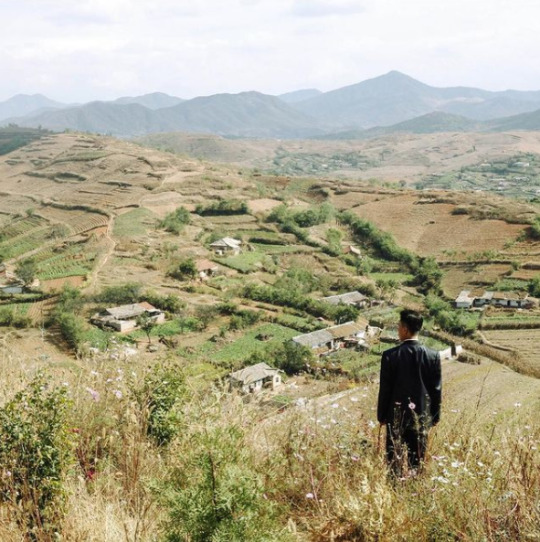
Hey, I'm back again with a very scary "tankie" post that asks you to think of North Koreans as people, and to consider their country not as a cartoonish dystopia, but as a nation that, like any other place on earth, has culture, traditions, and history.
Below is a collection of pictures from various cities and places in North Korea, along with a brief dive into some of the historical events that informs life in the so-called "hermit kingdom."
Warning: very long post
Kaesong, the historic city
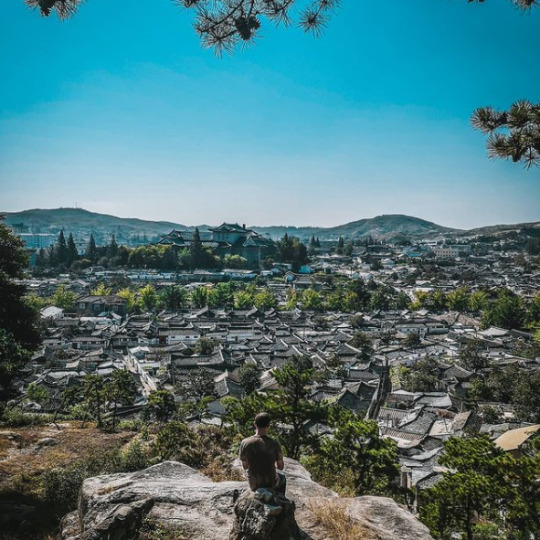
Beginning this post with Kaesong, one of the oldest cities in Korea. It's also one of the few major cities in the DPRK (i.e. "North Korea") that was not completely destroyed during the Korean war.
Every single city you'll see from this point on were victims of intense aerial bombardments from the U.S. and its allies, and had to be either partially or completely rebuilt after the war.
From 1951 to 1953, during what has now become known as the "forgotten war" in the West, the U.S. dropped 635,000 tons of bombs over Korea — most of it in the North, and on civilian population centers. An additional 32,000 tons of napalm was also deployed, engulfing whole cities in fire and inflicting people with horrific burns:
For such a simple thing to make, napalm had horrific human consequences. A bit of liquid fire, a sort of jellied gasoline, napalm clung to human skin on contact and melted off the flesh. Witnesses to napalm's impact described eyelids so burned they could not be shut and flesh that looked like "swollen, raw meat." - PBS
Ever wondered why North Koreans seem to hate the U.S so much? Well...
Keep in mind that only a few years prior to this, the U.S. had, as the first and only country in the world, used the atomic bomb as a weapon of war. Consider, too, the proximity between Japan and Korea — both geographically and as an "Other" in the Western imagination.
As the war dragged on, and it became clear the U.S. and its allies would not "win" in any conventional sense, the fear that the U.S. would resort to nuclear weapons again loomed large, adding another frightening dimension to the war that can probably go a long way in explaining the DPRK's later obsession with acquiring their own nuclear bomb.
But even without the use of nuclear weapons, the indiscriminate attack on civilians, particularly from U.S. saturation bombings, was still horrific:
"The number of Korean dead, injured or missing by war’s end approached three million, ten percent of the overall population. The majority of those killed were in the North, which had half of the population of the South; although the DPRK does not have official figures, possibly twelve to fifteen percent of the population was killed in the war, a figure close to or surpassing the proportion of Soviet citizens killed in World War II" - Charles K. Armstrong
On top of the loss of life, there's also the material damage. By the end of the war, the U.S. Air Force had, by its own estimations, destroyed somewhere around 85% of all buildings in the DPRK, leaving most cities in complete ruin. There are even stories of U.S. bombers dropping their loads into the ocean because they couldn't find any visible targets to bomb.
What you'll see below of Kaesong, then, provides both a rare glimpse of what life in North Korea looked like before the war, and a reminder of what was destroyed.
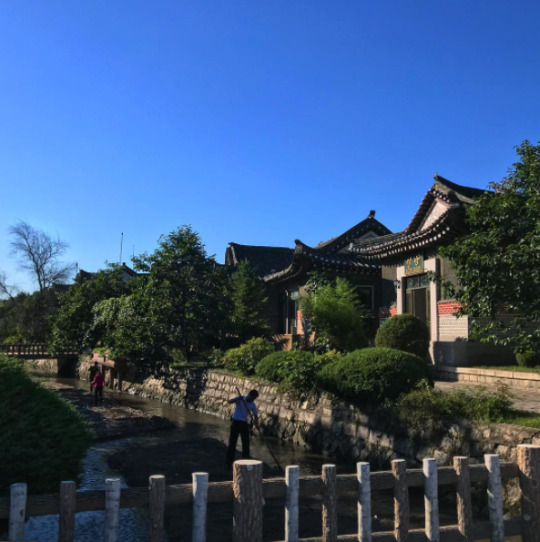
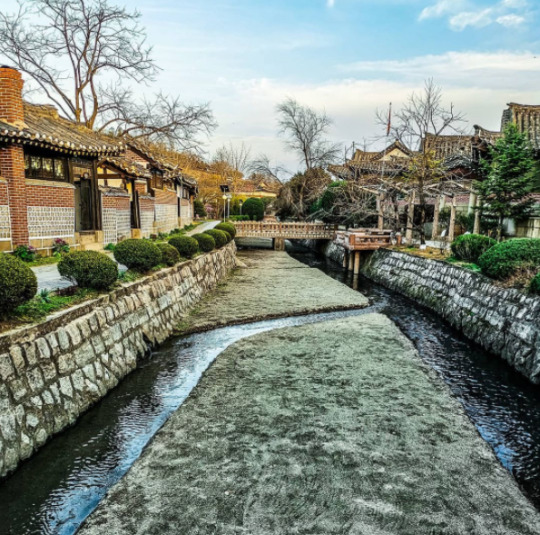
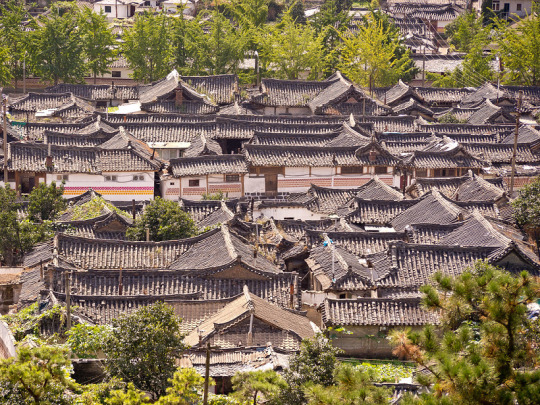
Kaesong's main street, pictured below.
Due the stifling sanctions imposed on the DPRK—which has, in various forms and intensities, been in effect since the 1950s—car ownership is still low throughout the country, with most people getting around either by walking or biking, or by bus or train for longer distances.
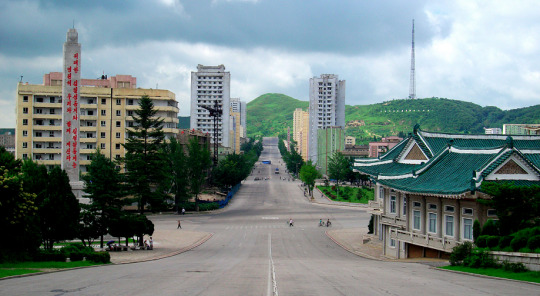
Kaesong, which is regarded as an educational center, is also notable for its many Koryŏ-era monuments. A group of twelve such sites were granted UNESCO world heritage status in 2013.
Included is the Hyonjongnung Royal Tomb, a 14th-century mausoleum located just outside the city of Kaesong.
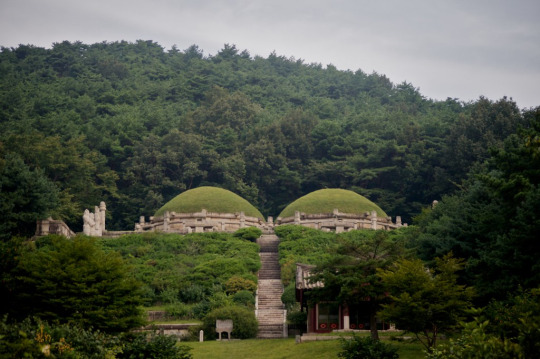
One of the statues guarding the tomb.
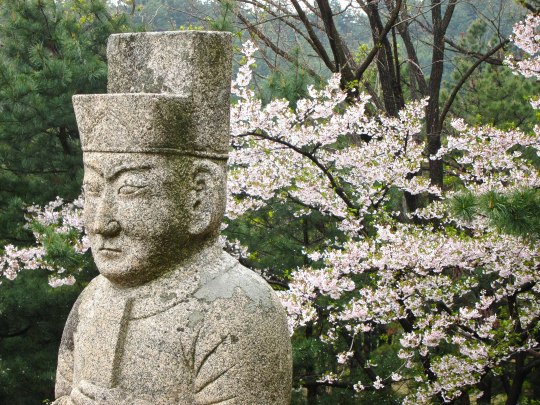
Before moving on the other cities, I also wanted to showcase one more of the DPRK's historical sites: Pohyonsa, a thousand-year-old Buddhist temple complex located in the Myohyang Mountains.
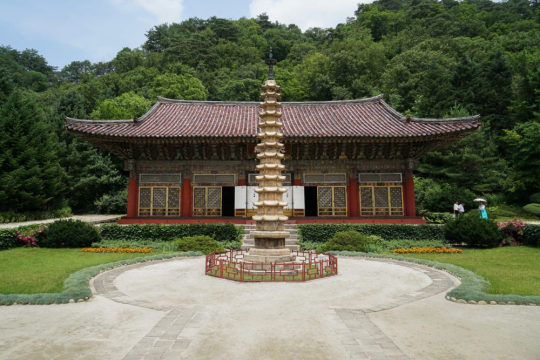
Like many of DPRK's historic sites, the temple complex suffered extensive damage during the Korean war, with the U.S. led bombings destroying over half of its 24 pre-war buildings.
The complex has since been restored and is in use today both as a residence for Buddhist monks, and as a historic site open to visitors.
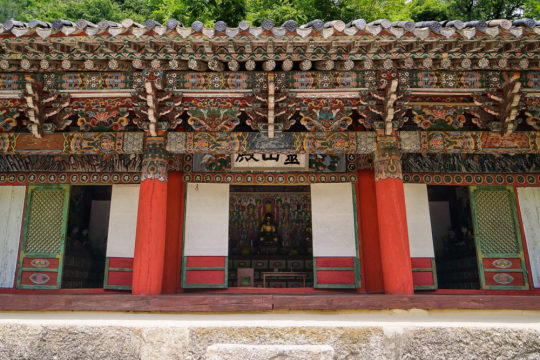
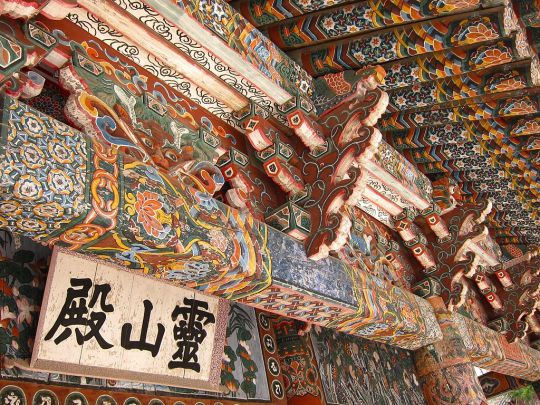
Hamhung, the second largest city in the DPRK.
A coastal city located in the South Hamgyŏng Province. It has long served as a major industrial hub in the DPRK, and has one of the largest and busiest ports in the country.
Hamhung, like most of the coastal cities in the DPRK, was hit particularly hard during the war. Through relentless aerial bombardments, the US and its allies destroyed somewhere around 80-90% percent of all buildings, roads, and other infrastructure in the city.
Now, more than seventy years later, unexploded bombs, mortars and pieces of live ammunition are still being unearthed by the thousands in the area. As recently as 2016, one of North Korea's bomb squads—there's one in every province, faced with the same cleanup task—retrieved 370 unexploded mortar rounds... from an elementary school playground.
Experts in the DPRK estimate it will probably take over a hundred years to clean up all the unexploded ordnance—and that's just in and around Hamhung.
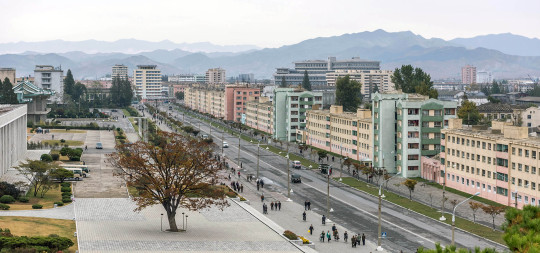
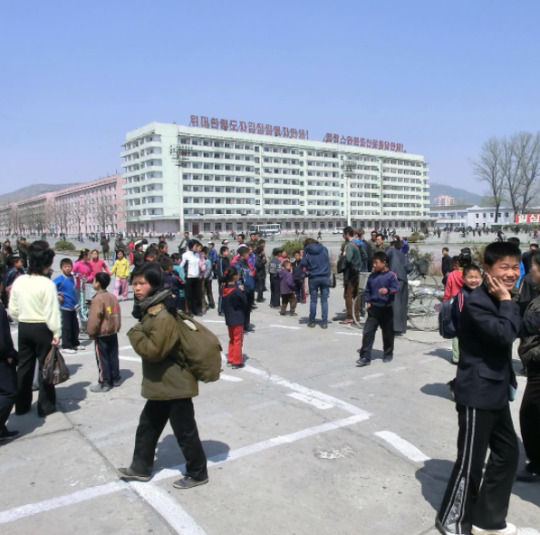
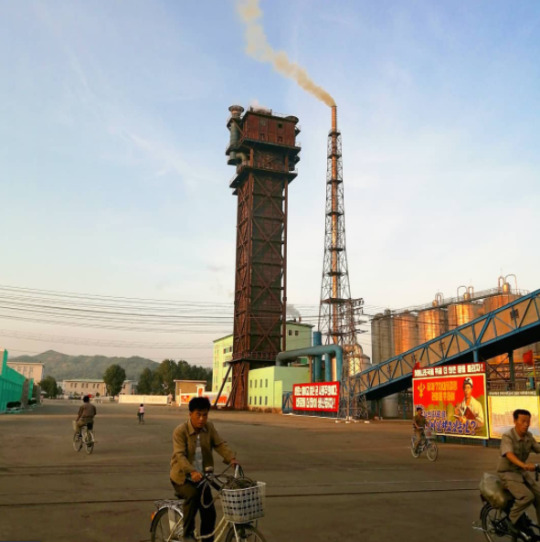
Hamhung's fertilizer plant, the biggest in North Korea.
When the war broke out, Hamhung was home to the largest nitrogen fertilizer plant in Asia. Since its product could be used in the creation of explosives, the existence of the plant is considered to have made Hamhung a target for U.S. aggression (though it's worth repeating that the U.S. carried out saturation bombings of most population centers in the country, irrespective of any so-called 'military value').
The plant was immediately rebuilt after the war, and—beyond its practical use—serves now as a monument of resistance to U.S. imperialism, and as a functional and symbolic site of self-reliance.
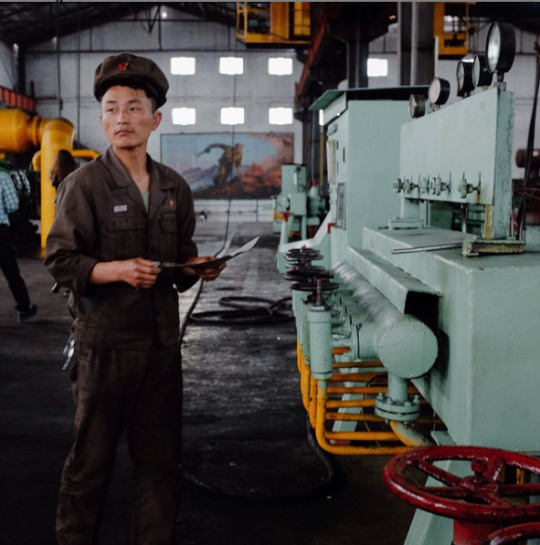
Chongjin, the third largest city in the DPRK.
Another coastal city and industrial hub. It underwent a massive development prior to the Korean war, housing around 300,000 people by the time the war broke out.
By 1953, the U.S. had destroyed most of Chongjin's industry, bombed its harbors, and killed one third of the population.
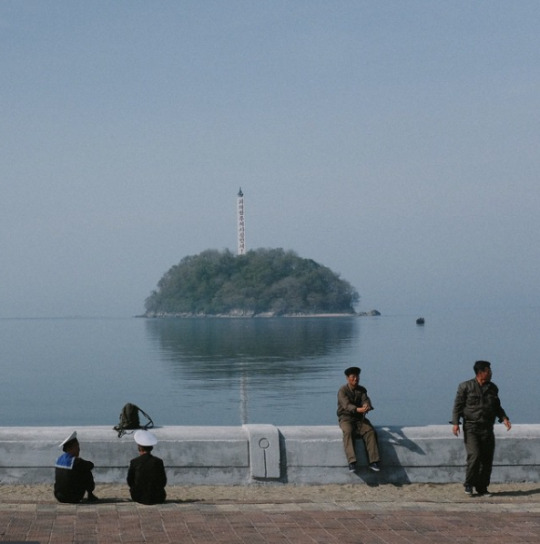
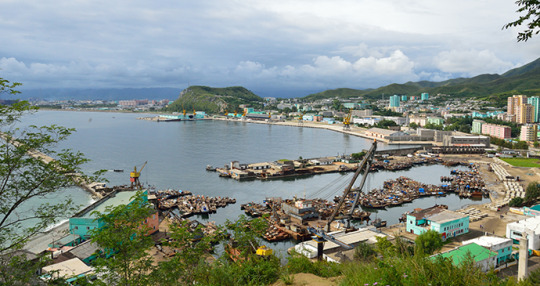
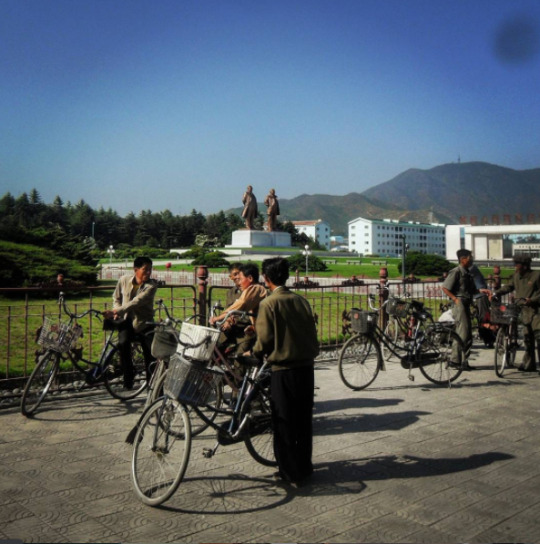
Wonsan, a rebuilt seaside city.
The city of Wonsan is a vital link between the DPRK's east and west coasts, and acts today as both a popular holiday destination for North Koreans, and as a central location for the country's growing tourism industry.
Considered a strategically important location during the war, Wonsan is notable for having endured one of the longest naval blockades in modern history, lasting a total of 861 days.
By the end of the war, the U.S. estimated that they had destroyed around 80% of the city.
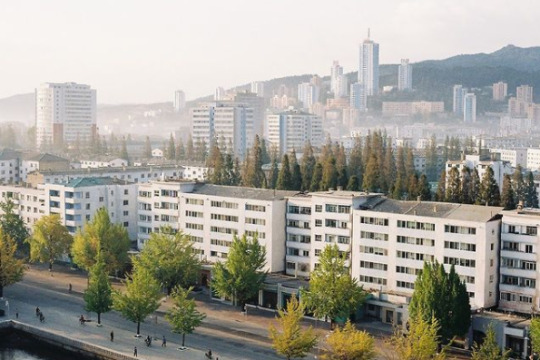
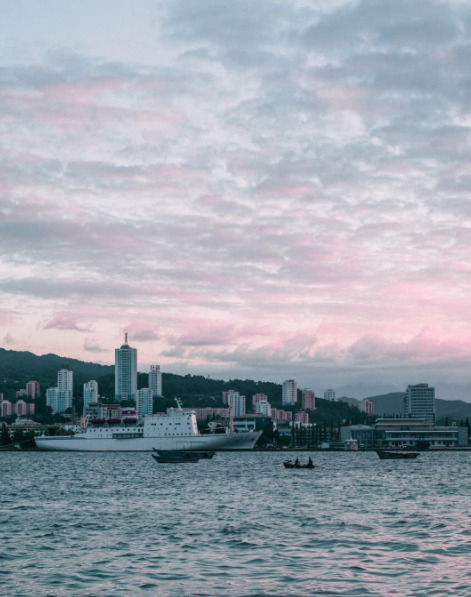
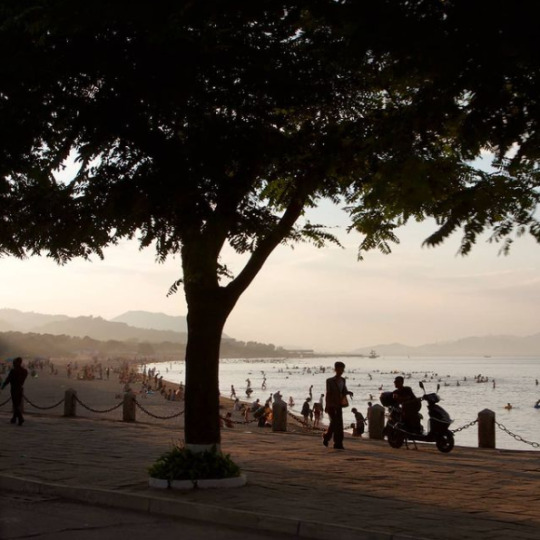
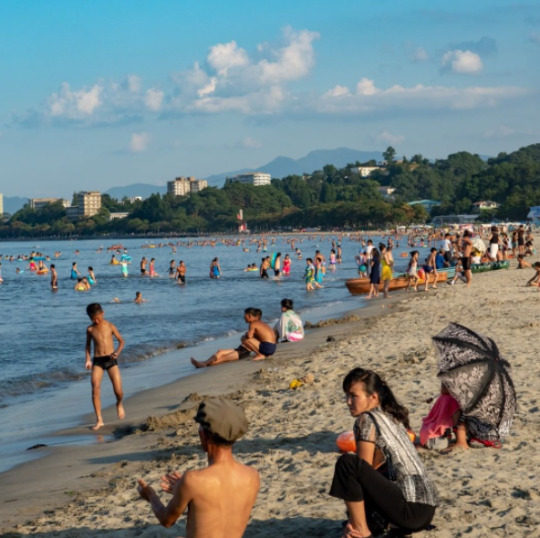
Masikryong Ski Resort, located close to Wonsan. It opened to the public in 2014 and is the first, I believe, that was built with foreign tourists in mind.
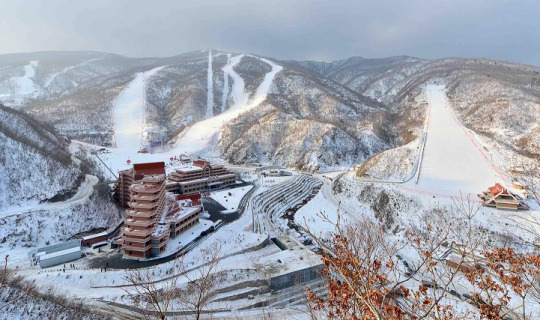
Sariwon, another rebuilt city
One of the worst hit cities during the Korean War, with an estimated destruction level of 95%.
I've written about its Wikipedia page here before, which used to mockingly describe its 'folk customs street'—a project built to preserve old Korean traditions and customs—as an "inaccurate romanticized recreation of an ancient Korean street."
No mention, of course, of the destruction caused by the US-led aerial bombings, or any historical context at all that could possibly even hint at why the preservation of old traditions might be particularly important for the city.
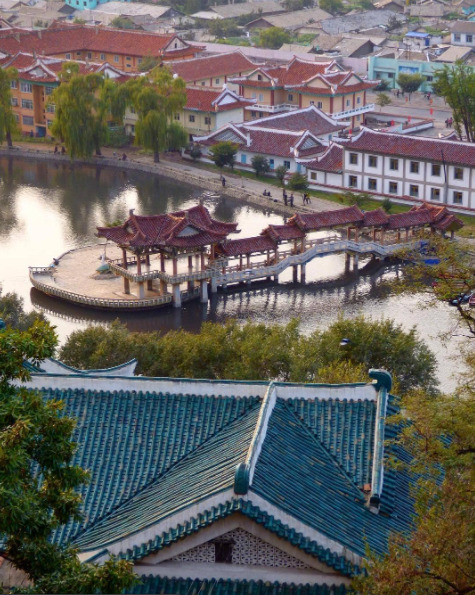
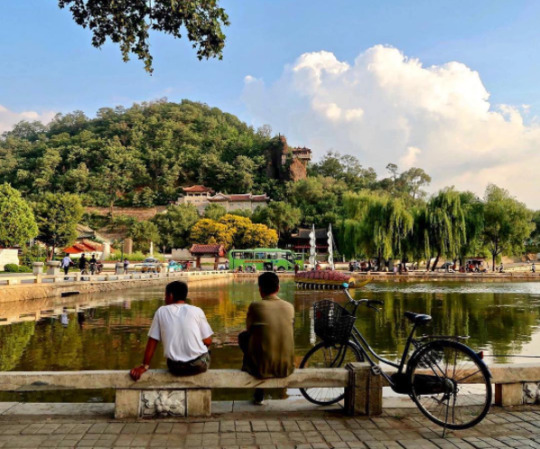
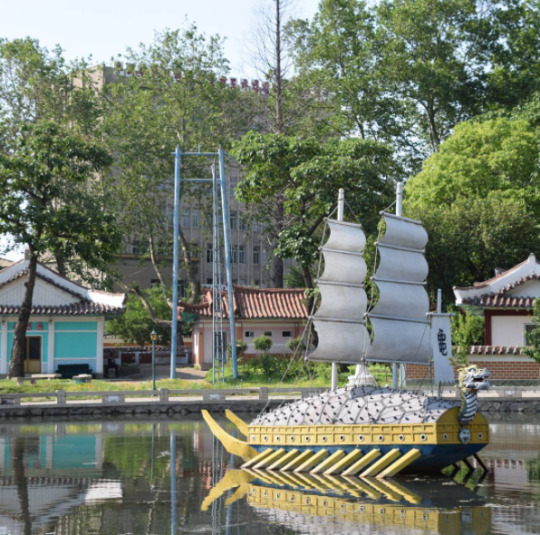
Life outside of the towns and cities
In the rural parts of the DPRK, life primarily revolves around agriculture. As the sanctions they're under make it difficult to acquire fuel, farming in the DPRK relies heavily on manual labour, which again, to avoid food shortages, requires that a large portion of the labour force resides in the countryside.
Unlike what many may think, the reliance on manual labour in farming is a relatively "new" development. Up until the crisis of the 1990s, the DPRK was a highly industrialized nation, with a modernized agricultural system and a high urbanization rate. But, as the access to cheap fuel from the USSR and China disappeared, and the sanctions placed upon them by Western nations heavily restricted their ability to import fuel from other sources, having a fuel-dependent agricultural industry became a recipe for disaster, and required an immediate and brutal restructuring.
For a more detailed breakdown of what lead to the crisis in the 90s, and how it reshaped the DPRKs approach to agriculture, check out this article by Zhun Xu.
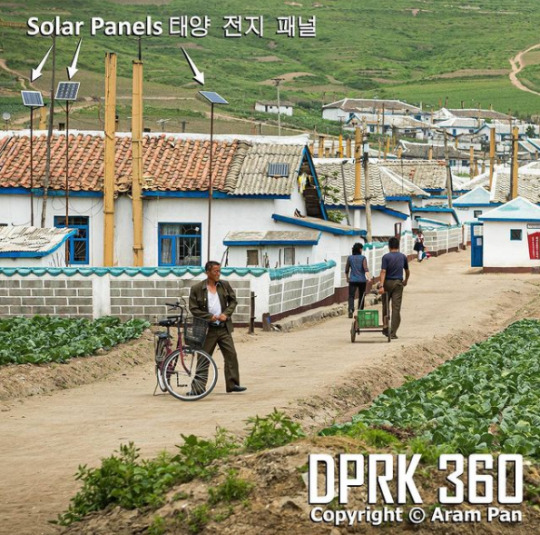
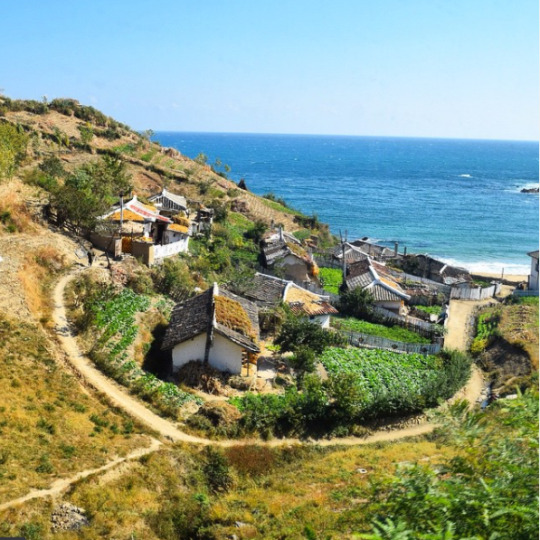
Some typical newly built rural housing, surrounded by farmland.
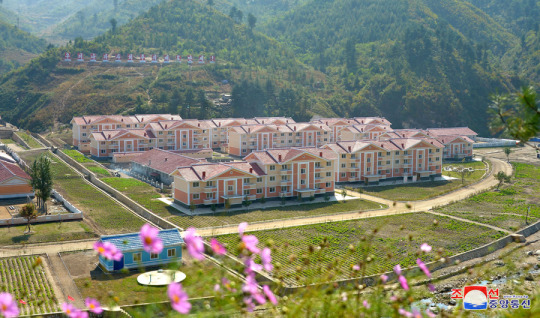
Tumblr only allows 20 pictures per post, but if you want to see more pictures of life outside Pyongyang, check out this imgur album.
#dprk#north korea#i've had this post unfinished in drafts for almost a year#also sorry about the spelling and potential formatting issues it's a nightmare to edit at this point#it was literally just meant to be a collection of picture and then the writing just sort of happened#enjoy the brief heritageposts history lesson i guess
6K notes
·
View notes
Text

i'm not crying, you are
#digital art#tadc#the amazing digital circus#tadc pomni#tadc gummigoo#tadc spoilers#tadc funnygummy#sort of? i guess#fan art#pi doodles
2K notes
·
View notes
Text
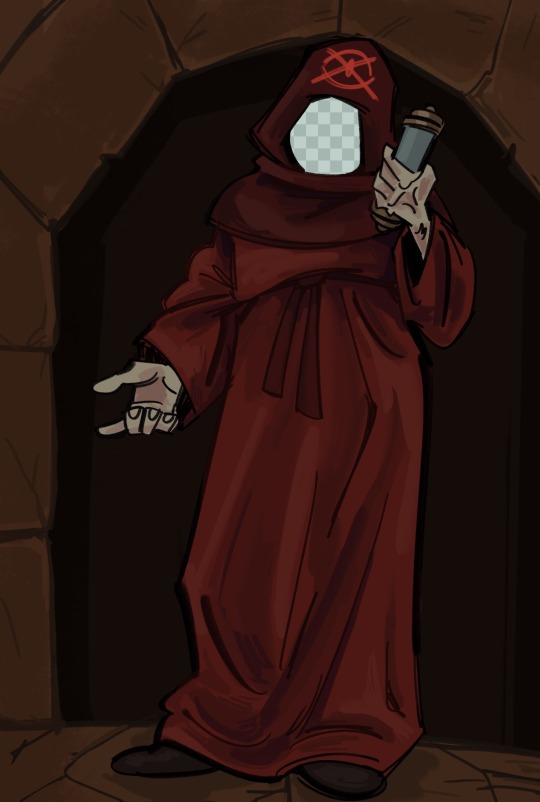
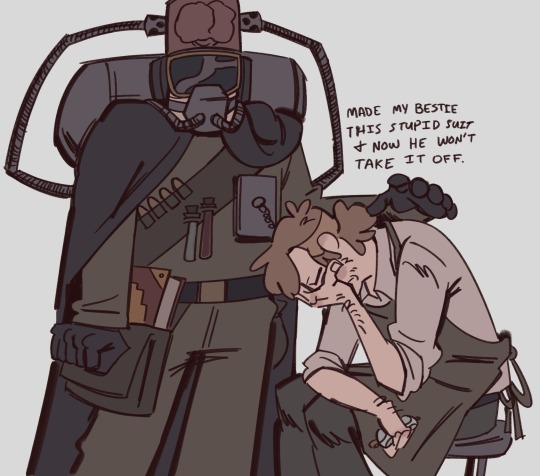
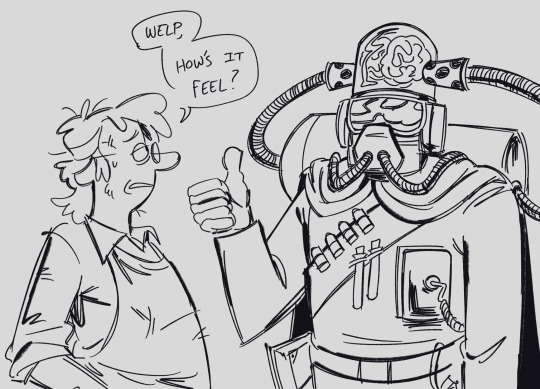
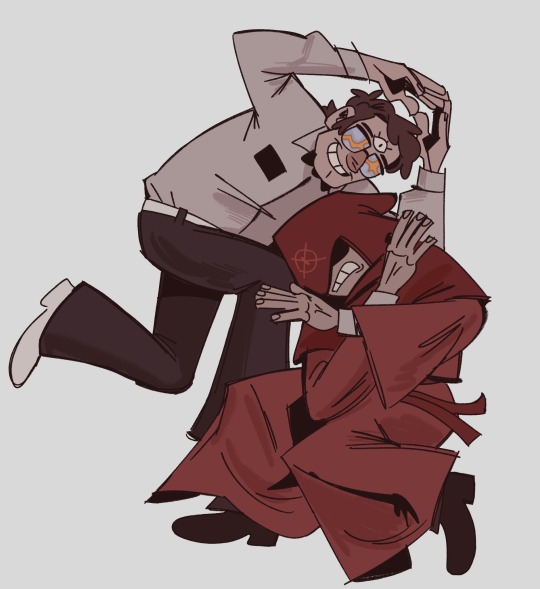
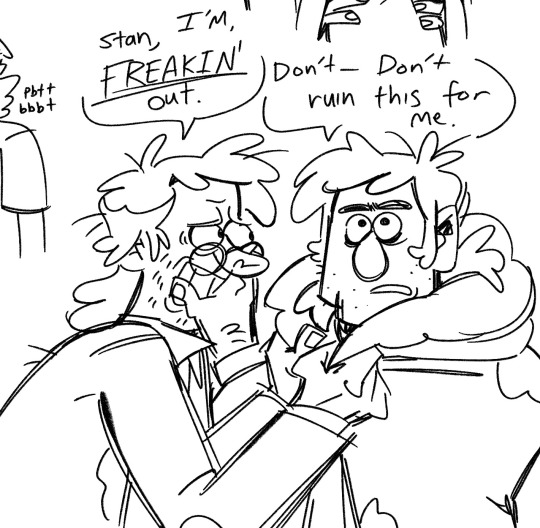
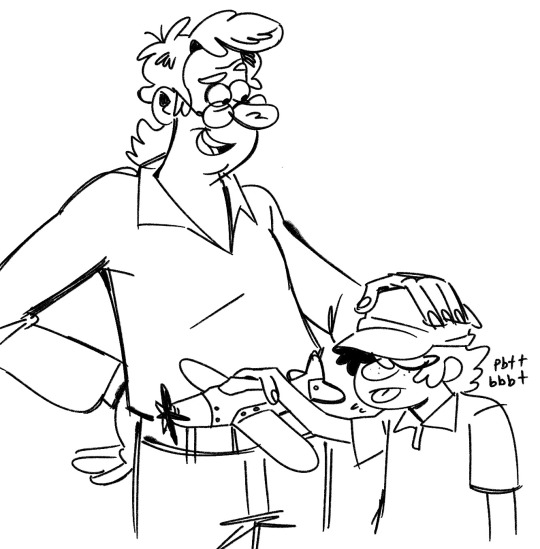
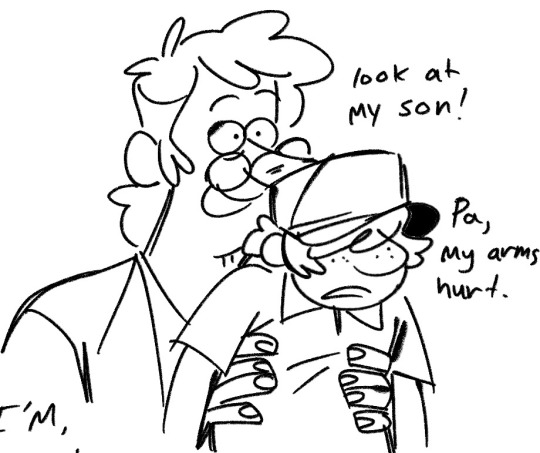
posting stuff i haven't posted here before the year ends or something
#im in an art regression i think idk.#generally just in a rutt i guess#anyway time for context no one asked for#i had this idea where in the 'a better world' universe#fidds does make the anti cipher suit#and ford wears it constantly (for good reason)#but as they get older it gets modified#so he never really goes out without some sort of suit#uh also just wanted to draw ciphertologist ford and blind eye fiddleford bc its a silly match up to me#fiddleford mcgucket#tate mcgucket#stanford pines#mullet stan#ig hes there too
1K notes
·
View notes
Text
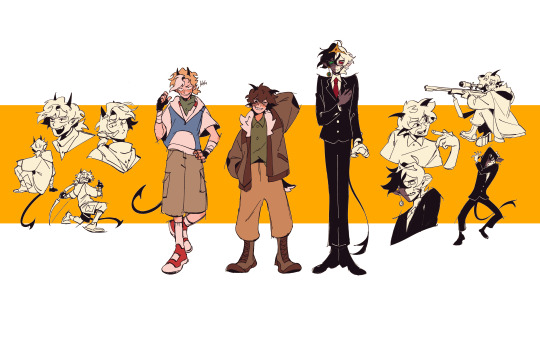
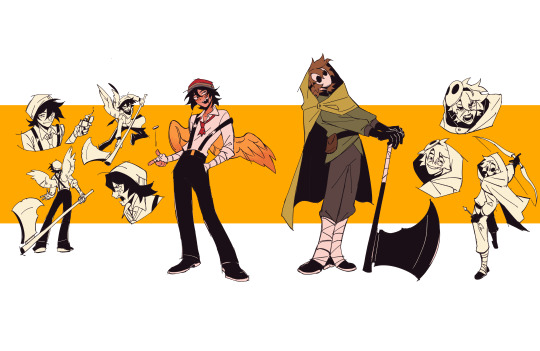
some guys
4K notes
·
View notes
Text




me when i get the opportunity to think about speculative biology and non-existent game mechanics in media i like
⠀
#the candle creatures are revamps#i had created the idea for them years ago but i wanted to redo them slightly with new eyes#the “dark variants” of the mantas and birds are variants of them that have adapted for life in wasteland and the forests#and also#i like the idea of candle creatures that live in villages or within communities#that are sort of akin to strays that the whole community takes care of#means alot to me#this isnt everything ive been thinking about#ill make a couple diagrams about the large birds#yknow the ones from rhythm that we see once and never again. yeah.#they exist in my heart#anyway#skycotl#sky cotl#sky children of the light#sky#sky:cotl#sky: cotl#thatskygame#speculative biology#<- i guess?#im having fun ok#im happy to answer questions about my thoughts btw!#might be answered on my main if i cant muster a doodle or something#but i love answering asks#so if ur interested id love to hear thoughts :)
2K notes
·
View notes
Text
the whole "angels in the bible don't look like that, they actually look like this" thing is beyond exhausted at this point, but i do think it's interesting to consider it from the perspective of an actual angel. imagine being told that this thing which makes your halo crackle and wings bristle from how wrong it is, is you. this twisted mockery, with its wings that don't sit quite right and move in such unnatural ways, and its halo which looks so dull and lifeless and hollow, its flat empty eyes with nothing behind them. the humans have a word for this feeling, "uncanny valley" - that which resembles what you know but which your senses just can't accept as anything but a false mimic, an intruder infiltrating your ranks, threatening to replace you without anyone even noticing your absence - but you have no such concept, only a nameless fear and inexplicable sense of dread.
#🐉#i guess this is sort of what the mandela catalogue is about but we never actually get another angels perspective on fake gabriel#angels
5K notes
·
View notes
Text

The Lion and the Unicorn. And some diamond leaf willow for flavor.
2K notes
·
View notes
Text
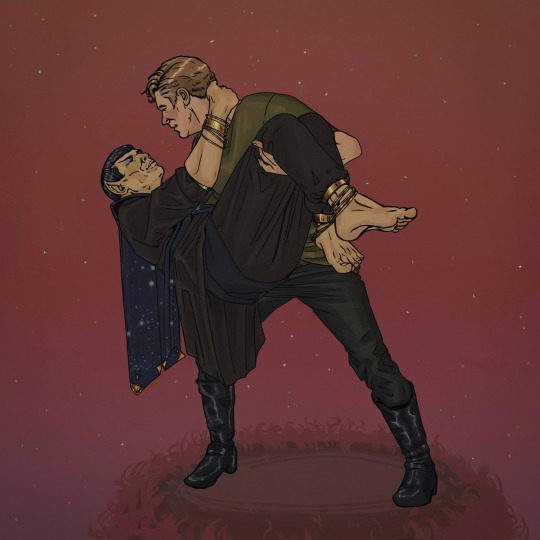
jim carrying spock in vulcanian robes
#gold is there just because i wanted to#i think spock looks pretty in gold#also i intended this as some bridal ceremony of sorts#so yeah our boys are officially getting married#this is somewhere on vulcan#star trek#spirk#spock#james t kirk#my art#not the best ik but i guess it will do#bridal style carry as i promised
2K notes
·
View notes